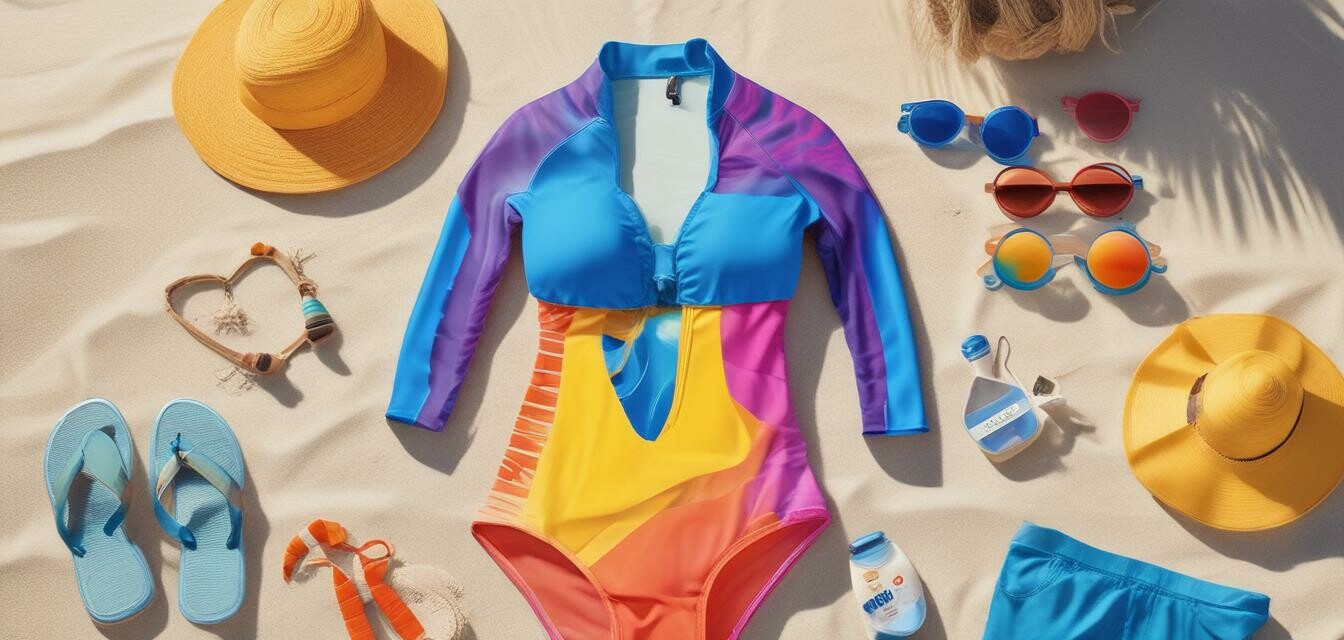
UV Protective Swimwear: What to Look For
Key Takeaways
- Look for fabrics with a high UPF rating (30-50+) for better sun protection.
- Consider moisture-wicking materials that keep you cool and dry.
- Check for additional features like flat seams and comfortable fits.
- Pay attention to care instructions to maintain UPF effectiveness.
- Choose styles suitable for your activities, whether swimming, surfing, or beach lounging.
UV protective swimwear is essential for those who spend time outdoors, especially at the beach or pool. But what should you look for when choosing an effective swimsuit? This guide will help you navigate the key features and materials that make swimwear effective in UV protection, enabling you to make informed decisions.
Understanding UPF Ratings
Just like SPF indicates the level of protection in sunscreen, UPF (Ultraviolet Protection Factor) ratings help you understand the protective abilities of fabrics. A higher UPF signifies greater protection against harmful UV rays. Here's a breakdown of UPF ratings:
| UPF Rating | Protection Level | Description |
|---|---|---|
| 15-24 | Good | Blocks about 93-96% of UV radiation. |
| 25-39 | Very Good | Blocks about 96-97.5% of UV radiation. |
| 40-50+ | Excellent | Blocks over 97.5% of UV radiation. |
The Role of Fabric in UV Protection
Not all fabrics are created equal when it comes to UV protection. Here’s what to consider:
- Material: Fabrics made from nylon, polyester, and spandex often provide excellent UPF protection.
- Weave & Density: A tighter weave and thicker fabric generally offer better protection.
- Color: Darker colors tend to absorb more UV radiation compared to lighter colors.
Common Fabric Types for Swimwear
| Fabric Type | UV Protection Level | Benefits |
|---|---|---|
| Polyester | High | Durable and maintains shape over time. |
| Nylon | Medium to High | Lightweight with excellent stretch. |
| Spandex | Medium | Provides elasticity and comfort. |
Additional Features to Look For
When shopping for UV protective swimwear, being mindful of additional features can enhance your experience:
- Moisture-wicking properties: Helps keep you dry and comfortable.
- Flat seams: Reduces chafing during aquatic activities.
- Storage options: Pockets for convenience when at the beach.
- Adjustable straps: For a customizable fit that suits your body type.
Caring for Your UV Protective Swimwear
Proper care is essential to maintain the UPF effectiveness of your swimwear. Here are some tips:
- Wash your swimwear in cold water to preserve elasticity and color.
- Avoid bleaching products as they can degrade fabric quality.
- Air dry your swimwear instead of using a dryer to prevent fabric damage.
- Store your swimwear out of direct sunlight when not in use.
Choosing the Right Style for Your Activities
Different activities warrant different styles of swimwear. Here are some common options:
- Bikinis: Great for casual beach lounging.
- One-pieces: Ideal for active water sports, providing coverage and support.
- Rash guards: Perfect for surfing and snorkeling; they offer additional protection against rashes from equipment.
- Board shorts: Comfortable for men; good for casual swimming and beach activities.
Conclusion
Investing in UV protective swimwear is essential for enjoying the outdoors safely and comfortably. By prioritizing UPF ratings, understanding fabric types, and looking for added benefits, you can enjoy your time at the beach or pool while minimizing sun exposure. Explore our range of UV protective swimwear to find the perfect option for your next adventure!
Pros
- Consistent sun protection without the need for reapplication.
- Lightweight and comfortable for all-day wear.
- Available in various styles to suit different activities.
- Durable materials withstand beach and pool environments.
Cons
- Higher initial cost compared to regular swimwear.
- Some fabrics may feel less breathable in extreme heat.
To learn more about health and safety tips when enjoying the sun, check out our blog. Don’t forget to browse our collection of UV protective accessories to complement your swimwear!